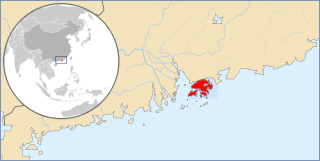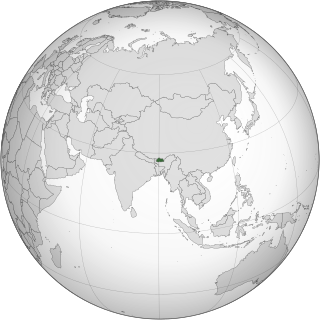Related Research Articles
A telephone numbering plan is a type of numbering scheme used in telecommunication to assign telephone numbers to subscriber telephones or other telephony endpoints. Telephone numbers are the addresses of participants in a telephone network, reachable by a system of destination code routing. Telephone numbering plans are defined in each of the administrative regions of the public switched telephone network (PSTN) and in private telephone networks.

Telephone numbers in the United Kingdom are administered by the Office of Communications (Ofcom). For this purpose, Ofcom established a telephone numbering plan, known as the National Telephone Numbering Plan, which is the system for assigning telephone numbers to subscriber stations.

The Australian telephone numbering plan describes the allocation of phone numbers in Australia. It has changed many times, the most recent major reorganisation by the Australian Communications & Media Authority taking place between 1994 and 1998.

The French telephone numbering plan is used in Metropolitan France, French overseas departments and some overseas collectivities.

Telephone numbers in Hong Kong are mostly eight-digit. Fixed land line numbers start with 2 or 3, mobile (cellular) phone numbers with 5, 6, 7 or 9, pager numbers with 7 and forwarding service with 8. Since the end of 1989, there have been no area codes within Hong Kong.
The Big Number Change addressed various issues with the telephone dialling plan in the United Kingdom, during the late-1990s and early-2000s.

Telephone numbers in Turkey went from six (2+4) to seven digits (3+4) local phone numbers c.1988, at which time Ankara went from 41 to 4. There used to be more than 5,000 local area codes of varying lengths with correspondingly varying local number lengths.
Denmark generally uses an eight-digit closed telephone numbering plan. Subscriber numbers are portable with respect to provider and geography, i.e. fixed line numbers can be ported to any physical address in Denmark.

Telephone numbers in Norway have the country code "+47" and up to the first 2 digits of the phone number will indicate its geographic area. Emergency services are 3 digits long and start with the number "1". Mobile numbers vary in length, either 8 digits or 12 digits.

The regulation of telephone numbers in Germany is the responsibility of the Federal Network Agency of the German government. The agency has a mandate to telecommunications in Germany and other infrastructure systems.

Until 1999, Tanzania, Kenya and Uganda shared a telephone numbering plan, in which subscribers were only required to dial the trunk code, area code and number. In that year, Tanzania adopted a new numbering plan. Calls to Kenya and Uganda require a regional prefix rather than having to use full international dialling. To call Kenya from Tanzania, subscribers dial 005 instead of +254, while to call Uganda, they dial 006 rather instead of +256. To call Tanzania from Kenya and Uganda, subscribers dial 007 instead of +255.

On February 1, 2004 Moldova introduced a new closed telephone numbering plan with an open dialing plan.
Telephone numbers in Estonia follow a closed telephone numbering plan.
Slovenia received a new country code following the breakup of the Socialist Federal Republic of Yugoslavia in 1991. Additionally, the Ipko mobile phone company in Kosovo used the +386 country code.
Fixed line numbers in Botswana are seven digits long in a closed telephone numbering plan, with the geographical area being indicated by the first two or three digits, meaning that there are no area codes. The country was allocated its own country code by the International Telecommunication Union, +267, in the late 1960s.

A telephone number in Belgium is a sequence of nine or ten digits dialed on a telephone to make a call on the Belgian telephone network. Belgium is under a full number dialing plan, meaning that the full national number must be dialed for all calls, while it retains the trunk code, '0', for all national dialling.
National conventions for writing telephone numbers vary by country. While international standards exist in the form of recommendation E.123 by the sector ITU-T of the International Telecommunication Union (ITU), national telephone numbering plans define the format of telephone numbers assigned to telephones and similar communication endpoints.
Telephone numbers in Monaco are eight digits in length, with fixed line numbers beginning with the digit 9 and mobile phone numbers with the digit 6.
Eswatini, then known as Swaziland, was allocated the country code +268 by the International Telecommunication Union, in the late 1960s. To call a telephone number in Eswatini, the following format is used:

Typical format for telephone numbers in Bhutan are: +975 XX XXXXXX (mobile) and +975 X XXXXXX.
References
- ↑ http://www.itu.int/oth/T020200005E/en Numbering plan in 2007
- ↑ http://www.conatel.gouv.ht/node/114 Current numbering plan
| North: +1 649 | ||
| West: Country code +53 in Cuba, +1 876 | +509 in Haiti | East: +1 809/829/849 |
| South: Caribbean Sea | ||
| Dominican Republic area codes: 809/829/849 | ||
| Turks and Caicos Islands area codes: 649 | ||